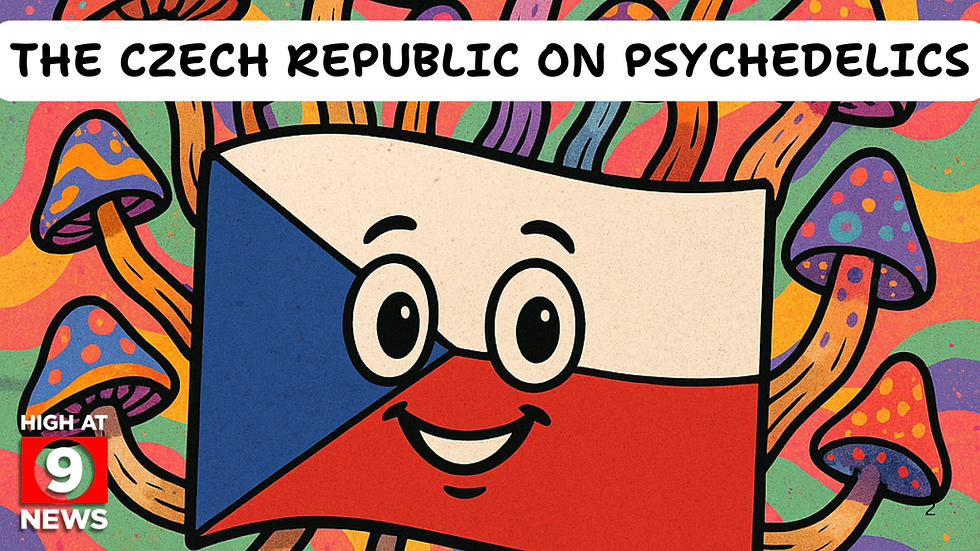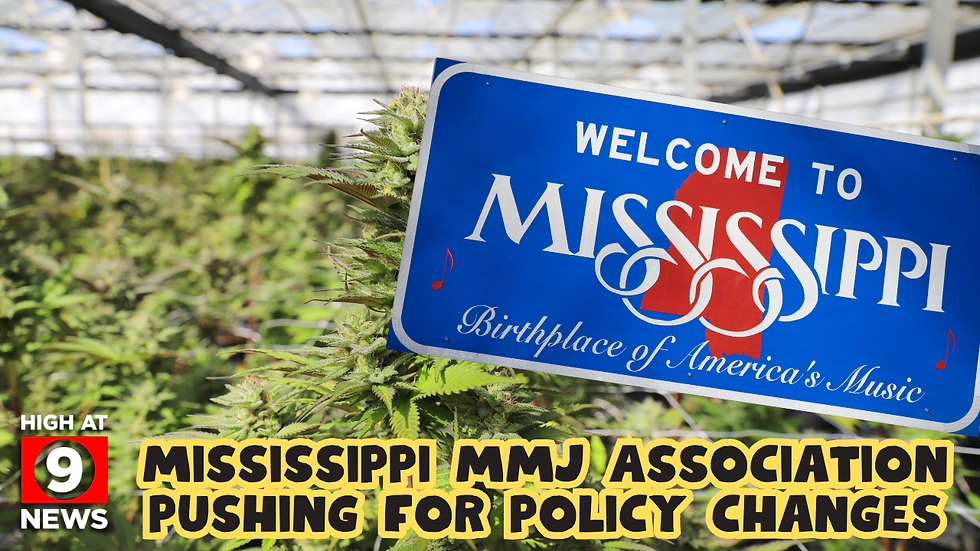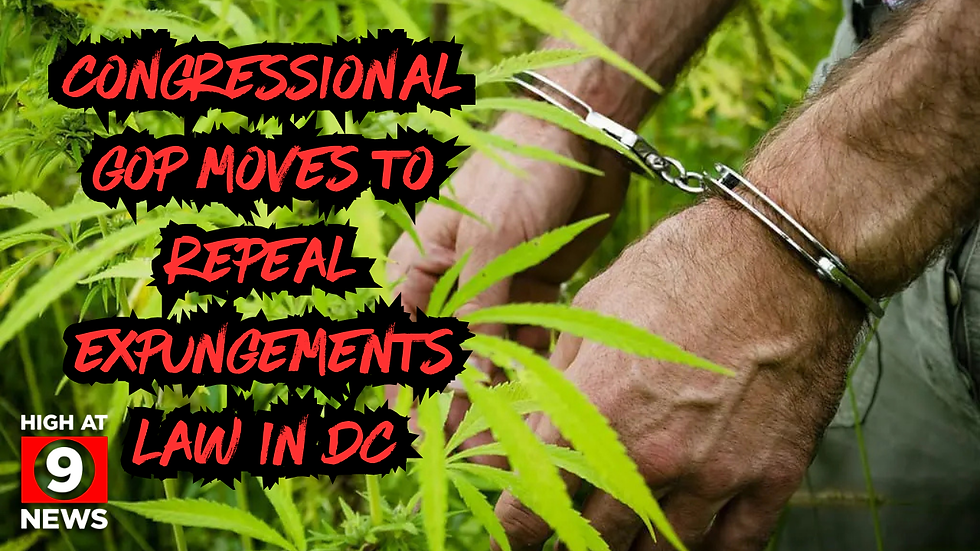The Czech Republic on Psychedelics
- barneyelias0
- Aug 26
- 6 min read
August 26 2025

When Rick Doblin, founder and president of the Multidisciplinary Association for Psychedelic Studies —an organization that has been working for nearly 40 years to legalize MDMA-assisted psychotherapy—proclaimed a few years ago that he wanted to see psychedelics enter the mainstream, no one expected that his wish would be granted so soon in the Czech Republic. Far from merely arousing controversy or disgust among Czechs, psychedelics are now sparking curiosity, interest, and acceptance. Like the regular chime of a church bell, psychedelia echoes through public discourse. The Czech media’s consistent attention demonstrates that the era of psychedelics as taboo in that country is over.
A recent survey by the Psychedelics Research Foundation (PSYRES) reports that 68% of Czechs support the therapeutic use of psychedelics—and no wonder. The country’s extensive history of psychedelic research in the 1960s and ’70s (some of it well documented in the book “LSD: The Highway to Mental Health”) created an environment that embraces the idea that these compounds have a rightful place in psychiatry.
Czech scientists, led by Dr. Tomáš Páleníček, from the Centre for Psychedelic Research at the National Institute of Mental Health, are currently publishing one paper about psychedelics after another. Two ongoing studies (PSIKET001 and PSIKET002) are comparing the effects of psilocybin to ketamine in double-blind trials to develop a therapy for treatment-resistant depression and cancer-related depression. These studies are unique in their design and show promising results. In February 2025, Dr. Páleníček’s team received a grant of nearly €800,000 from the Ministry of Labour and Social Affairs in the Czech Republic to support destigmatization efforts and implement a special ketamine-assisted psychotherapy protocol for patients who are unable to work and are socially incapacitated due to depression.
The Czech Republic continues to establish itself as the home of modern psychedelic therapy. Psyon, the first psychedelic-assisted therapy clinic in Europe, was established in 2019. Since then, it has treated more than a thousand patients suffering from depression and mental health disorders with ketamine-assisted therapy. Some therapies have even been covered by insurance, a critical step in making these treatments accessible to the general public.
The Czech Psychedelic Society celebrated its 10th anniversary this year. It is partially as a result of their work organizing hundreds of educational lectures and events that the generally favorable climate for psychedelics continues to thrive in the Czech Republic.
And there is much more to come.
Political and Scientific Developments in Czech Psychedelic Research
On Friday, June 6, 2025, an amendment bill passed the lower house of the Czech Parliament that would make medical psilocybin available under certain conditions. A few weeks later, the Senate and the President followed suit and signed the amendment into law. The bill also includes new legislation related to cannabis—namely, the full decriminalization of up to three cannabis plants and 100 grams per person. Jindřich Vobořil, the former Czech Anti-Drug Coordinator, wrote on Facebook about the legislation.
“From depenalizing cannabis cultivation to making our children safer from sexual predators, the changes to the criminal code were signed by the President yesterday,” wrote Vobořil. “A major, important reform of the criminal code has succeeded—truncated, with big, giant compromises, but big changes nonetheless!
Success always has many fathers—from the national coordinator, to ministers, to activists and advocates, to courageous MPs and Senators. It must be acknowledged that this is a bold step in politics.
For me, the important thing in my area is not to have a huge percentage of people in prison for socially less dangerous acts.”
On June 9, 2025, just a few days after the lower house of Parliament made its decision, hundreds of curious visitors attended the closed-door conference “Innovative Practices in Mental Health: The Czech Republic as an EU Leader?” The event opened space for discussions on topics ranging from “the global mental health crisis and society’s psychological resilience” to “the potential of psychedelic-assisted psychotherapy as a means of coping.” The conference also discussed practical steps towards the implementation of the new legislation and the expected economic impact.
This was the second edition of the annual conference, aiming at a wider audience and not just government representatives. The discussions were organized by the PSYRES foundation and the Brussels-based organization, Psychedelics Europe. While last year’s focus was psilocybin, this year’s theme was MDMA. Doblin gave a brief explanation of why MDMA is important and why he has dedicated his life to making MDMA therapy accessible again. After the conference the next day, Doblin described the evolution of MDMA from its discovery to its current status at a public event attended by several hundred people.
Doblin’s participation in the government conference, as well as the prominent attention given to MDMA in the event’s program, could be a harbinger of further steps toward opening the door to other psychedelic substances. Czech scientists have shown wide-ranging interest in different psychedelics and their therapeutic applications, as reflected in the diversity of recent research.
Several studies on psilocybin and ketamine have already been conducted in the Czech Republic. The Centre for Psychedelic Research also enrolled patients in the European Phase 2 trial of MDMA-assisted therapy for PTSD, led by MAPS. Meanwhile, the psychedelic clinic Psyon has just received the green light to administer LSD under a research protocol.
In 2019, Dr. Páleníček’s team traveled to Brazil with a portable EEG to measure the effects of ayahuasca used in traditional settings on brain activity. This expedition was captured in the documentary film “Doctor on a Trip,” and includes collaboration with the indigenous Huni Kuin tribe. “Doctor on a Trip” is evidence of how widespread public interest is in psychedelic therapy, with thousands of people already having attended screenings of it across the Czech Republic.
The Key Role of Public Awareness
One of the essential drivers for the legal acceptance of psychedelic-assisted therapy in the Czech Republic has been increased public awareness, alongside scientific research and a broad harm reduction service network. Ten years ago, there was virtually no coverage of psychedelics in the Czech media, which went hand in hand with a lack of public interest. Without awareness, there is no discussion; and when there is no public discussion, there is no interest from government representatives.
Thanks to the activities of the Czech Psychedelic Society (CZEPS) and the growing visibility of psychedelic topics in public spaces, all three aspects—awareness, discussion, and political interest—have gradually and persistently expanded. Now, after a decade of effort, 68% of the Czech population supports psychedelic-assisted therapy.
In 2022, a Polish couple, Jarosław Kordys and his partner, were arrested in the Czech Republic for activities related to ayahuasca. The case revolved around packages from South America that contained chacruna, a plant containing DMT. This psychoactive compound, when brewed, makes ayahuasca a controlled substance. Jarosław spent two years in custody, while his partner was prosecuted outside of prison. The final verdict sentenced him to 8.5 years and her to 8 years in prison.
During the trial, PSYRES, CZEPS, and other organizations united in their efforts to help bring visibility to the case. With the support of generous donors, they hired PR agencies and succeeded in making the case highly public. The outcome shocked many. The former Czech president, Miloš Zeman, known for his rudeness, arrogance, and chain-smoking, pardoned the couple. While it was a rare and unexpected move, the heightened public scrutiny likely played a decisive role in influencing his decision.
The Next Steps
With fewer than 11 million inhabitants, the Czech Republic seems like a perfect candidate to successfully implement psychedelics within the next few years, depending also on the results of the autumn elections. Inspired by and aware of the rapidly expanding psychedelic movement in the U.S., but with a certain amount of caution, step by step, the doors that were once wide open are beginning to move again.
Today, more and more of the people involved are calling for a round table where all the different parts of the movement can sit together to discuss how to navigate the current stream – how not to leave behind any of the elements of the psychedelic realm that are worth considering. Such a gathering might prove crucial, yet also difficult to navigate, because – as in any other community or movement – the relationships among people are often the grey eminence that ends up writing the story.
High hopes for the Czech Republic to continue moving towards a future where science, tradition, and community come together to shape an inclusive psychedelic landscape.
Featured image: Speakers at the “Innovative Practices in Mental Health: The Czech Republic as an EU Leader?” conference in Prauge, 2025.

















Comments